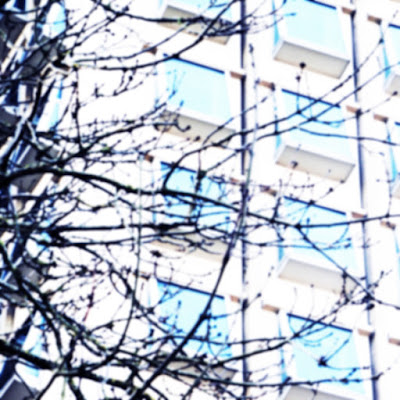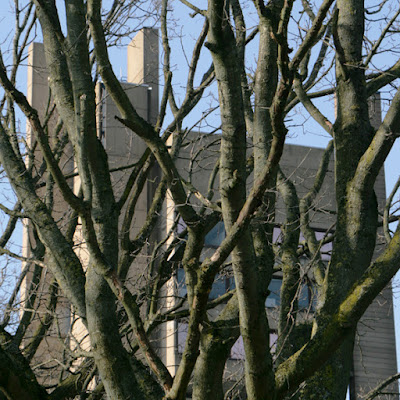 |
| All Photo-Manipulations: February 2025 |
Reconfigured Appropriated Texts [Translated]:
This sense of adventure certainly doesn't come from events. A new plan will have to be presented to move the project forward. I've proven that it's more about how moments flow into each other. A fire destroyed the surrounding area (I think that's what has happened). Suddenly, it feels as if time is passing, that each moment leads to another, this one to another, and so on; that each moment is destroying itself and there's no point in stopping it, etc. It will deteriorate, be vandalised, and then we attribute this property to the events happening to us at the moment. Leaving things as they are clearly doesn't work. What's formal extends to substance. It's unusable, consisting of thin brick pillars topped with a dilapidated wooden-clad building. For three months of the year, there are no clear signs of progress or imminent construction. In fact, this famous era is much talked about, but barely seen. I think if nothing is done immediately, the situation will get worse.
 |
| All Original Images: Old Basford, Nottingham, February 2025 |
If I remember correctly, this is called the irremediability of time. At this point, it seems impossible to save anything - the feeling of adventure would just be the irremediability of time. I have to face it; every day - a complete waste of time. But why don't we always have it? Is it because time isn't always irremediable? (I would prefer if nothing happened.) There are times when you feel like you can do whatever you want, move forward or backward, it doesn't matter. And then, at other times, it feels like the network has become strained, and you can't accept that when people come here by tram. That’s the first thing to do in those cases. It’s not a failure because you can't start over (no tangible progress has been made). The applicant appealed the decision, but the Inspector upheld it. They hadn't noticed much activity on the site, except for the presence of a man who appeared to be moving rubble and debris.


I'm afraid of cities. But we mustn't abandon them. Someone has to live somewhere. Previous comments have spoken of 'nationalities' in an unfinished housing development on a citywide and national scale. If you go too far, you reach the Vegetation Belt (the greenery stretches for miles toward the cities). It's waiting, but the first thing you see is the dirty desert. When the city dies, vegetation will invade it. It will climb the stones, grab them, dig them out, tear them apart with its long black claws and accelerate its growth. It will fill the holes and plant its green paws everywhere. We must live in cities while they are alive. One should never enter alone into such a mass of hair waiting at their door. It's dangerous for the residents (neither safe nor proper).


Permission has not been implemented. You should be allowed to lift and puncture the old cross-filters, as the approved project isn't considered financially viable in the city. If you know how to do it, choose times when the animals are digesting or sleeping in their burrows (while conveniently ignoring the old, long-abandoned local eyesores hidden behind piles of organic detritus). It's a shame, you rarely find anything there but minerals - the least frightening existents of all.




































